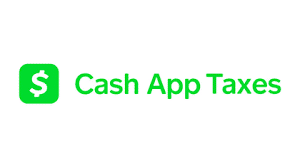
Cash App Taxes
Cash App Taxes Pros
- Always free for all users
- State returns are free too
- Easy-to-use interface
Cash App Taxes Cons
- Limit of one state return per filer
- Limited expert support
- Some filing situations not supported
You probably know Cash App as one of the country’s most popular money transfer apps. Perhaps you’re among its millions of users. It also now offers a free income tax prep platform that caters to frugal, self-confident filers with situations ranging from the simple to the very complex.
No matter how convoluted your finances are, you can file taxes free with Cash App Taxes.
Formerly known as Credit Karma Tax, Cash App Taxes shares much in common with fellow DIY online tax prep programs like FreeTaxUSA and TaxAct. But its prep and filing process has enough idiosyncrasies to warrant a detailed review.
Key Features of Cash App Taxes
You must understand these features to get the most out of Cash App Taxes.
Tax Packets
Cash App Taxes’ prep interface is built around your individualized Tax Packet: the complete set of tax forms you need to complete your return.
To build your Tax Packet, Cash App Taxes uses your answers to a series of basic questions about your life and finances. If you’ve prepared your taxes online in the past, you’re familiar with the gist of these questions. They cover topics like your marital status, homeownership status, employment, investments, charitable contributions, health care, and miscellaneous sources of income.
Once you’ve answered all these questions, you land on your Tax Packet dashboard. It lists all the steps you must complete before you can file your return in sequential order.
Each section contains smaller subsections. For example, “I owned a home” is subdivided into several categories, including “mortgage interest paid” and “real estate taxes paid.” It only displays the most common subsections, but you can click the “Show less common items” drop-down at the bottom of each section to see everything.
Cash App Taxes assumes you’ll take the standard deduction, but the software tracks your deduction entries and prompts you to switch to itemizing if and when it thinks you should take the itemized deductions versus the standard deduction.
You can work on any subsection you choose in any order so long as you complete it before exiting. Otherwise, you may lose data. There’s no need to manually save your progress as long as you’ve completed your most recent subsection.
When you’re done filling out all of your subsections, you can move straight to your state tax return. The same basic process applies here, but Cash App automatically populates fields with info from your federal return to save time.
Before you file, the system reviews your entries and flags errors and inefficiencies. Correct those at your leisure, then send in your return.
Prior-Year Importing
Cash App Taxes allows users to import returns from the previous year in PDF format from its own previous versions and three other platforms: TurboTax, H&R Block, and TaxAct.
If you didn’t prepare last year’s return with one of those programs, you must manually enter all your personal information to get started.
W-2 Importing
Cash App Taxes has a photographic W-2 importing system. Simply snap a clear picture of your W-2, upload it through your account dashboard, and review the transcribed information field by field to confirm its accuracy.
It’s a fantastic tool for taxpayers prepping their returns on smartphones or tablets with built-in cameras.
Refund or Tax Debt Display
Like most online tax software, Cash App Taxes has a real-time refund display that shows you exactly how much of a refund or liability you can expect. The amount changes with each new bit of relevant information.
Free State Returns
Cash App Taxes doesn’t charge for state tax filing, a major advantage over competitors, the vast majority of which charge for state returns in all but the most straightforward of tax situations.
You’re entitled to one free state tax return per year, but that’s it. You can’t file a second state. If you lived in or earned income in multiple states during the tax year, you need to look for another tax prep program.
DIY Tax Help Center
Cash App Taxes’ Tax Help Center is a one-stop shop for technical assistance and basic tax prep help. It’s essentially a searchable, user-friendly knowledge base and FAQ trove with short articles and paragraph-length answers to just about every common tax question imaginable.
In my experience, the search function is substantially better than some competitors’ help sections, so there’s less slogging through rows of questions to find the answers you seek.
24/7 Support
Like many tax preparation programs, Cash App Taxes has 24/7 human support available by live chat. To initiate a help session, you need to fill out a support ticket in the Tax Help Center. Support staffers are qualified to handle technical questions related to your account and platform experience plus basic questions about your tax return itself.
Cash App Taxes doesn’t employ credentialed tax experts, such as CPAs, so take any complex questions elsewhere. Also, expect to wait in line for some time during peak periods. Cash App’s support team isn’t as robust as some competitors.
Maximum Refund Guarantee
Like most online tax filing services, Cash App Taxes has a maximum refund guarantee. If an identical return filed with another tax prep provider produces a larger IRS refund, Cash App Taxes will send you a gift card for the difference — up to $100.
This offer only applies to filers entitled to federal tax refunds, not those who owe taxes to the IRS. The gift card’s value remains the same regardless of the size of the discrepancy or refund.
Accurate Calculations Guarantee
Cash App Taxes also has an accuracy guarantee they call the Accurate Calculations Guarantee. If the IRS or your state tax collection agency penalizes you due to a Cash App Taxes calculation error, the platform promises to reimburse you up to $1,000.
Platform Limitations
As a relatively new online tax prep platform, Cash App Taxes isn’t as expansive or well-developed as more established competitors, such as TurboTax and Liberty Tax Online. It’s not appropriate for filers with certain complex tax situations, such as:
- Married couples filing separate state returns in community property states (Idaho, California, Arizona, New Mexico, Louisiana, or Wisconsin)
- Filers who need to file more than one state return
- Filers who need to report foreign earned income
- State returns unaccompanied by a federal return
Fortunately, Cash App Taxes is appropriate for most people with complex tax preparation needs, such as small-business owners, self-employed filers.
Advantages of Cash App Taxes
Cash App Taxes has several limitations for certain filers, but for most taxpayers, it has a lot going for it.
- Always Free for All Users. Anyone who can file a return with Cash App Taxes does so at no out-of-pocket cost. While the platform’s software limitations exclude certain filers, the vast majority qualify.
- One Free State Return. Unlike most competitors, Cash App Taxes doesn’t charge for your state return. However, you can also only file one state return per filing.
- Can Handle Tax Situations of Virtually Any Complexity. Cash App Taxes is appropriate for virtually any tax situation. But some less common situations, such as married people filing separately in community property states, are excluded.
- Prefilled Forms for Existing Users. If you already have a Cash App account, you can breeze through the demographic information section thanks to the platform’s handy information import. Just check that your transferred information is correct.
- 24/7 Customer Support. Cash App Taxes has around-the-clock customer support, which is excellent news for busy filers. Most low-cost competitors limit live support to extended weekday business hours.
- User-Friendly Prep Interface. Cash App Taxes has a user-friendly prep interface that looks great on smartphones and tablets. The super-clean design guides your eyes exactly where they need to go.
Disadvantages of Cash App Taxes
Cash App Taxes does have some notable downsides users should be aware of before they opt for this tax prep solution.
- Limit of One State Return. It only supports one state return per filing at present, a big problem for filers who moved across state lines or need to report income from multiple states. Cash App says it’s working on a fix, but there’s no timetable for its rollout.
- No Expert-Level Support Available. Cash App Taxes doesn’t offer access to credentialed tax experts, but many competitors do. If you’re not confident in your ability to navigate a complex return without leaning on an expert, go with something else.
- Limited Importing Capabilities for Prior-Year Returns. It only lets you transfer your prior-year information if you previously filed with Cash App Taxes (or its predecessor, Credit Karma Tax) or three competitors: H&R Block, TaxAct, and TurboTax.
- Married Filing Separately Not Available Everywhere. Married couples opting to file state taxes separately can only do so in equitable distribution of property states. If you’re married, must file state taxes, and live in any of these jurisdictions, you can only use Cash App Taxes if you plan to file jointly with your spouse.
- No Support for Foreign Earned Income. You can’t report income earned from foreign sources with Cash App Taxes, whether it’s from business or employment activities or passive ownership of foreign-registered securities.
How Cash App Taxes Stacks Up
While Cash App Taxes has some notable limitations, a quick comparison to TaxAct shows why it’s such a solid competitor in this space.
| Cash App Taxes | TaxAct | |
| Free Plan | Totally free for all users | Free for simple situations only |
| Expert Assistance | No | Yes, online assistance starts at $40; prep by pros starts at about $80 |
| Pay With Your Refund? | Not applicable | Yes, for an additional fee |
Final Word
At first blush, Cash App Taxes seems like it really is for everyone. Its simple tax prep plan includes all common IRS forms, meaning it’s applicable to tax situations of virtually any complexity.
That alone is big news, as most competing online tax prep providers limit their free federal filing packages to filers with simple to moderately complex situations.
Though it’s not ideal for novice filers due to limited expert-level support, Cash App is one of the few programs that allows tax-savvy small-business owners to file at no out-of-pocket cost.
The reality is a bit less sweeping. Due to software limitations, Cash App Taxes is unsuitable for small but important segments of the U.S. taxpaying population: filers with income in multiple states, filers with foreign income, and married couples filing separately in a community property state.
If you fall into any of those categories, you’ll need to look elsewhere for your tax prep needs. Otherwise, Cash App Taxes is definitely worth a close look.
The Verdict

Cash App Taxes
Cash App Taxes Pros
- Always free for all users
- State returns are free too
- Easy-to-use interface
Cash App Taxes Cons
- Limit of one state return per filer
- Limited expert support
- Some filing situations not supported


